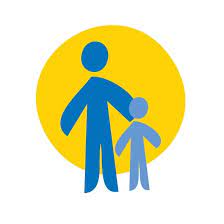This news article is more than a year old
Encouraging measles vaccination
6th February 2024
Measles infection has recently occurred in Iceland. If you believe you or your children have measles, you can call 1700 or contact Healthcare's online forum and we will advise you with your next steps. Note that if the infection is suspected, no clinic or hospital should be established due to the risk of group transmission. The National Health Service encourages parents to ensure that children are vaccinated against measles if you have any questions, call 1700 or your local health centre.
Children 0-6 months
Children 0-6 months are not vaccinated.
If a group infection occurs, parents are encouraged to keep children of this age away from many people.
Children 6-18 months
Children 6-18 months old can only be vaccinated if they are considered at risk of infection or if they have been infected.
Vaccination within three days of infection reduces the risk of illness.
If infection occurs, infection will start. Parents will be contacted with a message on My pages on Heilsuvera or text.
If parents do not receive messages, vaccination is not offered for children of this age.
Vaccination carried out before 12 months of age does not provide long-term protection, the vaccination must be repeated at 18 months of age and then again at 12 years of age.
Children 18 months and older
Parents of children 18 months of age or older who have not been vaccinated are encouraged to accept vaccination for their children as soon as possible.
It is best to contact your local health centre and get an appointment for the vaccination.
If parents are not sure if a child is vaccinated, information on this can also be contacted by the healthcare on the email, at 1700 telephone or through and information on vaccination of children.
Adults
People born before 1970 should not be vaccinated because they are highly likely to have contracted measles.
If an infection occurs in the immediate environment of adults born in 1970 or later, the infection tracing team will contact and offer the vaccination in question.
Measles symptoms
Measles is a highly contagious viral disease, with up to 90 percent of exposed infections. Transmission takes place mainly by respiratory spray, for example by coughing and sneezing. Unlike influenza and cold viruses, measles virus can stay in the air and cause infection for up to two hours after it enters the air. The symptoms of measles infection are usually similar to the flu symptoms at the beginning of the infection and appear 1-3 weeks after infection.
Swollen lymph glands
Temperature
Nefrency
Cough
Headache
Burning of the eye, redness and/or watery eyes
A whole-body rash develops on the third or fourth day.
Oral rash is very characteristic but is most visible on the first day of onset of rash
Young children often develop diarrhoea with fever before the rash develops
